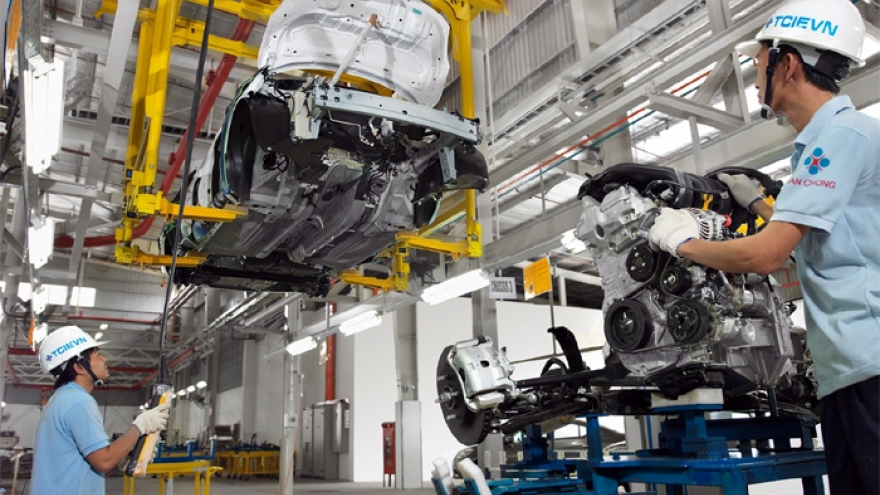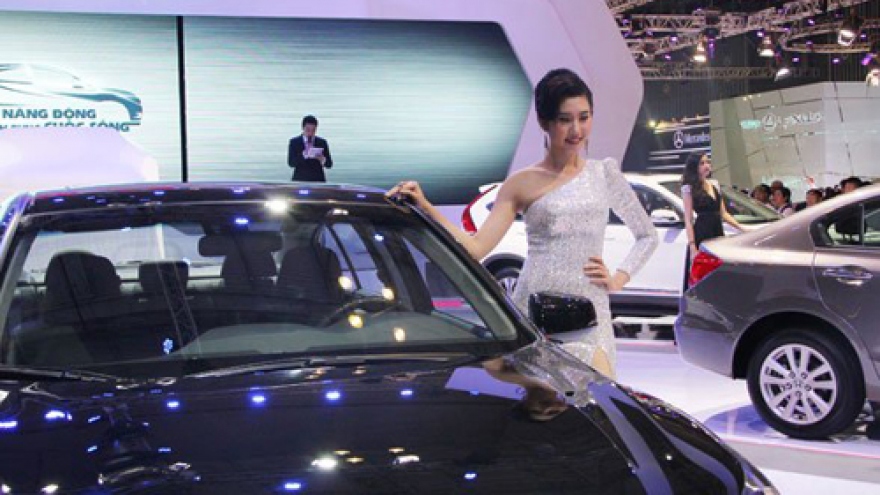Domestic automakers brace for imports
The domestic auto industry will need several supporting measures including technical barriers to “create differences” between locally-made and imported cars, officials and industry insiders agree.
 |
Truong Thanh Hoai, Director of the Department of Heavy Industry under the MoIT, said several firms currently assembling cars in the country are likely to switch to importing them.
He noted that some firms have eased production to focus on key models that are more competitive in the market.
He said the use of cars is rapidly increasing, with consumption having reached the figure envisaged for 2020, but the domestic auto industry faced a lot of shortcomings, and will be hit hard in 2018 when taxes on ASEAN imports drop to zero.
Statistics compiled by his department show that in the 2013-2016 period, the volume of locally-assembled cars and imported cars accelerated with an average growth of 30% per year. Of this growth, locally-assembled cars met 70% of the market demand.
A few domestic businesses also entered the global auto manufacturing chain; however, after more than 20 years of development, the industry faced several shortcomings, Hoai said.
Its prices are high compared to other countries in the region, quality is not as good as imports, as per consumer evaluation, it has failed to develop into a real auto industry, remaining at the basic assembling level and it had a low localisation rate for cars with nine seats and less.
Toru Kinoshita, General Director of Toyota Motor Vietnam, said his firm had always tried to increase the localisation rate. However, in the current context, Toyota had reduced its production from five to four types of cars, whose volumes will be increased, he said.
The drop of import tax to zero percent by 2018 is a good sign from a market angle, but a huge pressure on the domestic auto industry, said Kinoshita, who is also the President of Vietnam Automobile Manufacturers’ Association.
He said the Ministry of Industry and Trade needs to propose to the Government that it supports the domestic industry, failing which the automakers will run the risk of becoming uncompetitive and even going bankrupt as imported cars take over the market.
Kinoshita said it is possible for the domestic auto industry to develop, but the State’s management agencies need to consider policies which can “create differences between locally-made and imported cars.”
The ministry suggested three groups of measures to develop the industry, with the main targets of maintaining local manufacturing and boosting the supporting industry.
The first group will focus on creating technical barriers, preventing trade fraud in tax declaration and fraud in the certificate of origin for enjoying preferential tariffs.
The second group will support automakers cut the prices and raise competitiveness by issuing standards for components and parts, adjusting import taxes on components and parts.
The third group will focus on developing the supporting industry, with local businesses asked to take part in manufacturing components and parts. It will also help local parts suppliers through the supporting industry development programme.
Deputy Minister of Industry and Trade Do Thang Hai said policies for automobile industry development will primarily target the community’s interest, not of group of businesses.
“First of all, we will focus on maintaining local assembling and developing the supporting industry at the same time. The ministry’s measures will aim to create the market capacity to ensure development,” said Hai.
Based on this, it will boost other sectors’ production and ensure fair competition between imported and locally-assembled cars, he said.



